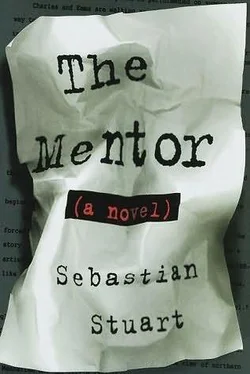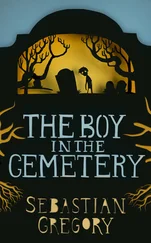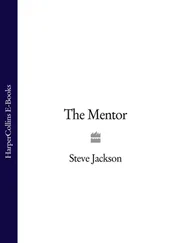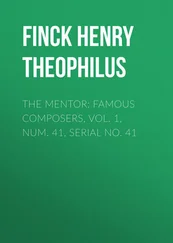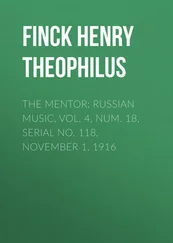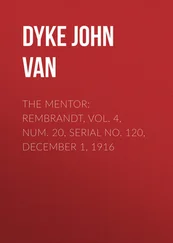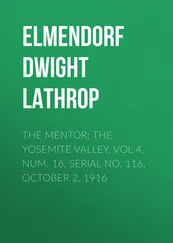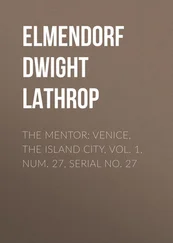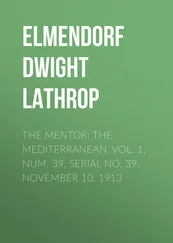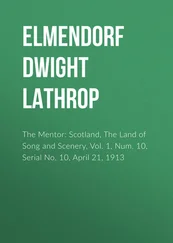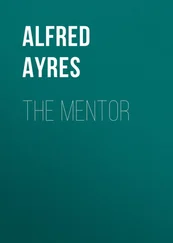Sebastian Stuart - The Mentor
Здесь есть возможность читать онлайн «Sebastian Stuart - The Mentor» весь текст электронной книги совершенно бесплатно (целиком полную версию без сокращений). В некоторых случаях можно слушать аудио, скачать через торрент в формате fb2 и присутствует краткое содержание. Жанр: Криминальный детектив, на английском языке. Описание произведения, (предисловие) а так же отзывы посетителей доступны на портале библиотеки ЛибКат.
- Название:The Mentor
- Автор:
- Жанр:
- Год:неизвестен
- ISBN:нет данных
- Рейтинг книги:3 / 5. Голосов: 1
-
Избранное:Добавить в избранное
- Отзывы:
-
Ваша оценка:
- 60
- 1
- 2
- 3
- 4
- 5
The Mentor: краткое содержание, описание и аннотация
Предлагаем к чтению аннотацию, описание, краткое содержание или предисловие (зависит от того, что написал сам автор книги «The Mentor»). Если вы не нашли необходимую информацию о книге — напишите в комментариях, мы постараемся отыскать её.
The Mentor — читать онлайн бесплатно полную книгу (весь текст) целиком
Ниже представлен текст книги, разбитый по страницам. Система сохранения места последней прочитанной страницы, позволяет с удобством читать онлайн бесплатно книгу «The Mentor», без необходимости каждый раз заново искать на чём Вы остановились. Поставьте закладку, и сможете в любой момент перейти на страницу, на которой закончили чтение.
Интервал:
Закладка:
The job done, Portia straightens up and meets Charles’s eyes for the first time. “You look like hell, Charles. Of course, you live in hell, so it no wonder.” Without waiting for a response, she heads toward the cottage. “Sun’s just about past the yardarm. Let’s have a martini and try to forget we’re alive.”
As a chicken roasts in the enormous old cast-iron oven, Charles sits by the fire with his feet up. He feels utterly at home, safe and protected in the cavelike cottage with its overflowing ashtrays and half-filled coffee cups and books, books everywhere-overflowing the shelves that line the walls, heaped in piles on the floor, spilling off tables and chairs. Across the room in the open kitchen Portia is whipping up dinner-between drags on her Pall Mall-with a vigor that belies her years. Root vegetables, tiny red potatoes, a salad of the season’s last greens, corn bread-suddenly Charles is ravenous.
“That smells fantastic.”
“It’s all fresh. Primitive. Nothing like it.”
“God, it’s good to be up here.”
“And to what do I owe?”
“I just needed to kick back and relax.”
“My bullshit alarm just went off.” Portia looks up from the sink where she washing the greens and eyes Charles with piercing honesty. “Except for a perfunctory phone call now and then and an Anne Turner Christmas card that managed to be hideously sentimental and depressingly trendy at the same time, I’ve barely heard from you in the past year. Now you show up without notice and want me to believe you’re here to kick back and relax?”
Charles knows she has him, of course; he has traveled up here to be had. It’s time to get honest with the one person who knows him better than any other. He stands and begins to pace around the room.
“You know what I admire about you, Portia?”
“I hope more things than we have time to discuss.”
“You were a legend. You could have taught forever. But when you felt your time was up, you quit.”
“When I had nothing more to say, I quit,” Portia answers, drying the greens on a soft old dish towel.
“Exactly. You quit. With dignity and grace.”
“And a damn good pension. What’s your point?”
“Have you read the new Mailer?” Charles asks.
“It’s brilliant. Too long, but brilliant.”
“And the new Styron?”
“Short, but also brilliant.”
Charles stops his pacing and looks out the window at the lake below. It’s just past twilight-that sweet fleeting in-between time-and the lake glows like an indigo jewel. “And my latest?”
Portia stops what she’s doing and considers for a moment. “Exactly the right length.”
Charles sits back down and instead of denying his hurt allows himself to accept it. “I wondered why I hadn’t heard from you.”
“I thought I’d wait until I was asked.”
In the silence that follows, Portia begins tossing the salad. “Do you remember your story about the Vietnamese whore nursing her baby?”
“That was the first story I ever wrote,” Charles says, remembering that dusty Saigon street corner, the painted whore just past puberty, the suckling infant, the nineteen-year-old boy, Charles, who watched them, fascinated, before finally approaching the mother, the child-mother, and offering her candy and money, which she accepted greedily, with a suggestive leer, her baby still hanging off her nipple.
“When you stood up in class and read it, I started to sweat with excitement.”
Charles looks into the fire. “But what if there is no more? What if I have nothing left to say?”
“If I believed that, I wouldn’t be wasting my time listening to you.” Portia takes the chicken out of the oven. It’s a succulent golden brown, surrounded by roasted potatoes, turnips, carrots, and onions. “Let’s eat. We have a lot of talking to do.”
Later, deep in the deep Adirondack night, Portia sits in her favorite chair while Charles paces. The picked-over dinner and empty wine bottles cover the table, the air is thick with smoke from Portia’s endless stream of Pall Malls, and the fire is a rubble of glowing red embers. Charles is in that realm beyond fatigue, where the mind finds its third wind and a terrible clarity takes hold.
“What’s that line at the end of Gatsby, when Nick talks about leaving the East? ‘So when the blue smoke of leaves…’ ” Charles says, shutting his eyes as he searches for the words.
Portia is right there: “ ‘When the blue smoke of brittle leaves was in the air and the wind blew the laundry stiff on the line-’ ”
“ ‘I decided to come back home.’ That’s it. That’s the kind of simple, clear poetry I want,” Charles says. “Nothing extra, every word exact. Not one comma out of place: ‘The blue smoke of brittle leaves
…’ ”
Fitzgerald’s words hang in the air. Charles sinks into a chair and feels the last years-the fearsome task of dredging up yet another book, the tightening vise of expectation, the bitter disap pointment, the seductive call of cynicism-coming home to roost on his tired bones. He’s at ground zero, defenseless.
“I’ve lost it, Portia. My inspiration. My will. The kid who wrote that story is dead.”
The weight of their history, their love, bears down on Charles. Portia is the closest thing to a parent, a real parent, that he has ever had. He can feel something like tears coming up inside him. He fights down the queasy feeling in his chest, the burning behind his eyes. He wants to turn and look at her, but doesn’t think he could hold her gaze. He lets his head roll back on the chair and closes his eyes.
From across the room, Portia studies him carefully.
Out in the moonless night the water, the forest, and the sky are endless and implacable. Portia’s living room window casts a soft yellow glow into the vastness.
How different the world looks in the morning. What seemed like hell the night before turns out to be merely purgatory, as if the dark’s demons are unable to survive the infusion of light. Portia is up and about long before Charles wakes from a profound sleep, feeling rested for the first time in recent memory. For a long time he lies on the narrow single bed in Portia’s cluttered spare room, listening to the dense quiet of the woods.
Something happened the night before: his logjam broke, and he can feel the cooling waters of hope flow through him. Maybe it was just admitting-to Portia, yes, but more important, to himself-how scared he is. He has begun to take measure of himself; just coming up here has been a first step.
After a quiet breakfast of blueberry corncakes, eggs laid ten minutes earlier and fried crisp around the edges, and strong coffee spiked with chicory, Portia and Charles head outside, out to the lake, to fish. And to talk. They make their way slowly down the rickety wooden steps that lead down the steep, rocky cliff to the water. The deserted lake is glorious in the morning sun. They climb into Portia’s battered rowboat, and she takes the oars while Charles readies the fishing rods.
“The little shits are down there laughing at us,” Portia says as they head out to the middle of the lake.
“Let’s hope they’re laughing with their mouths open.”
Portia pulls up the oars and takes her rod from Charles. They both cast off, breaking the still water with soft splashes. They fish in silence, a sympathetic calm settling over them.
“Portia, I need to make a lot of money. I’m in over my head,” Charles says finally.
“Write as if you have a hundred million in the bank,” Portia says dismissively.
“It’s awfully easy for you to say that, up here with nothing to lose.”
“I have you to lose, Charles, and I don’t want to… Or have I already?”
“What’s that supposed to mean?”
Читать дальшеИнтервал:
Закладка:
Похожие книги на «The Mentor»
Представляем Вашему вниманию похожие книги на «The Mentor» списком для выбора. Мы отобрали схожую по названию и смыслу литературу в надежде предоставить читателям больше вариантов отыскать новые, интересные, ещё непрочитанные произведения.
Обсуждение, отзывы о книге «The Mentor» и просто собственные мнения читателей. Оставьте ваши комментарии, напишите, что Вы думаете о произведении, его смысле или главных героях. Укажите что конкретно понравилось, а что нет, и почему Вы так считаете.
